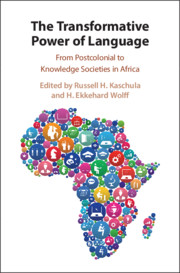Corpora as agency in the intellectualization of African languages
Abstract: The chapter critically examines the development of corpora that is being driven at the University of KwaZulu-Natal as one of the key agents of language intellectualisation. The chapter critically evaluates the architecture of the two types of corpora. The first corpus is the isiZulu National Corpus (INC). The INC is an organic corpus of 30 million tokens. It is designed as a monitor corpus, and an important precursor to the development of isiZulu human language technologies. It will be evinced that crucial to the development of the isiZulu spellchecker is the INC, which was used to train the checker. The second type of corpus is an English-IsiZulu Parallel Corpus (EIPC), with a modest size of fifty e-files of each natural language. A parallel corpus is a collection of identical texts in two natural languages, processed and stored in machine-readable format. The EIPC is crucial in the development of automated machine translations between English and isiZulu. The development of a machine translation tool using computational processes requires a parallel corpus such as EIPC as an agent and follows the tenets of the Data-Driven Machine Translation (DDMT) approach. The chapter outlines the imperative to develop both the INC and the EIPC. The chapter further shows that the two corpora are key components in the intellectualisation of isiZulu as a digital, scientific, natural language.
Keywords: Intellectualisation, corpora, INC, machine translation, computational tools

